An electrically powered Caterham Seven sports car is being primed, and two prototypes have made their debut at the Goodwood Festival of Speed in July.
The cars will look to match the 3.4sec 0-62mph performance of a 237bhp Seven 485, have enough battery power to perform flat out on track for 20 minutes and be able to fully recharge via a 150kW charger in 15 minutes.
It “dips our toe in the water” of EVs, Caterham CEO Bob Laishley told Autocar, adding: “We’re relying heavily on working with partners.”
The prototypes, which have been prepared by British Touring Car Championship engine builder Swindon Powertrain, are part of Caterham’s preparation for where legislation or parts availability might take it.
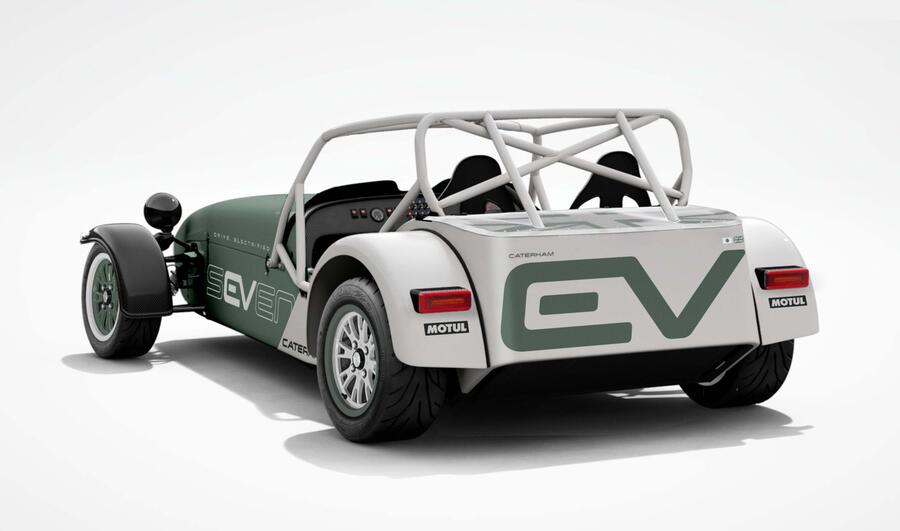
“This is not something we are selling tomorrow,” said Laishley, who was in charge of Nismo, Nissan’s performance car range, before joining Caterham in July last year.
“We’ll do it at the right time, which is when we can make a business case for it.” There are already some customer enquiries but at the moment, he said, “we haven’t got a queue of people”.
Creating an EV that can cope with the demands of a race track in a lightweight sports car form “is the complete opposite of what everyone thinks about making EVs” and is one of the hardest use cases to develop.
The electric prototypes feature a wide-bodied latest-generation Seven chassis, with the engine and transmission swapped out for a 50kWh (38kWh usable) battery.
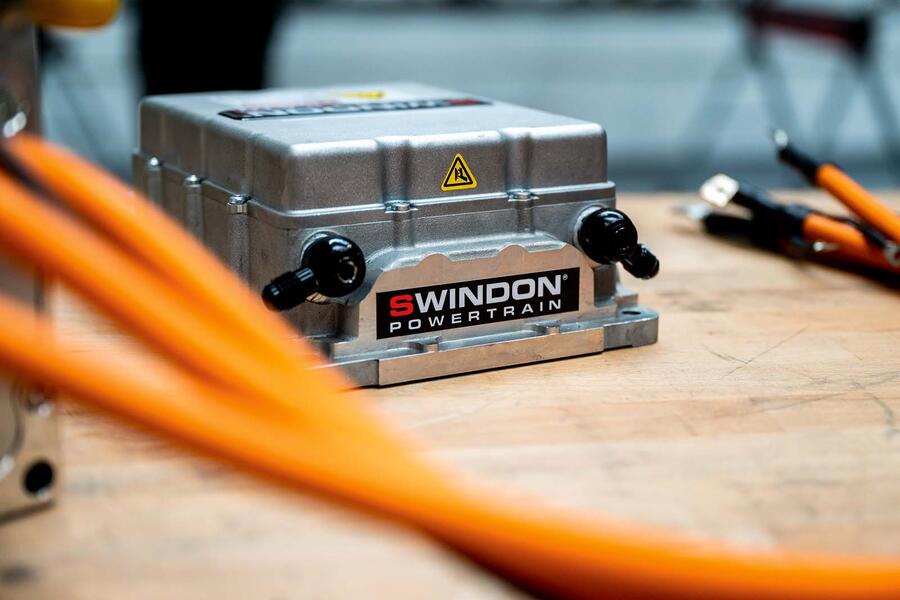
Elsewhere, a 322bhp electric motor and limited-slip differential are packaged where the boot would usually be and incorporate a Seven’s de Dion rear suspension.



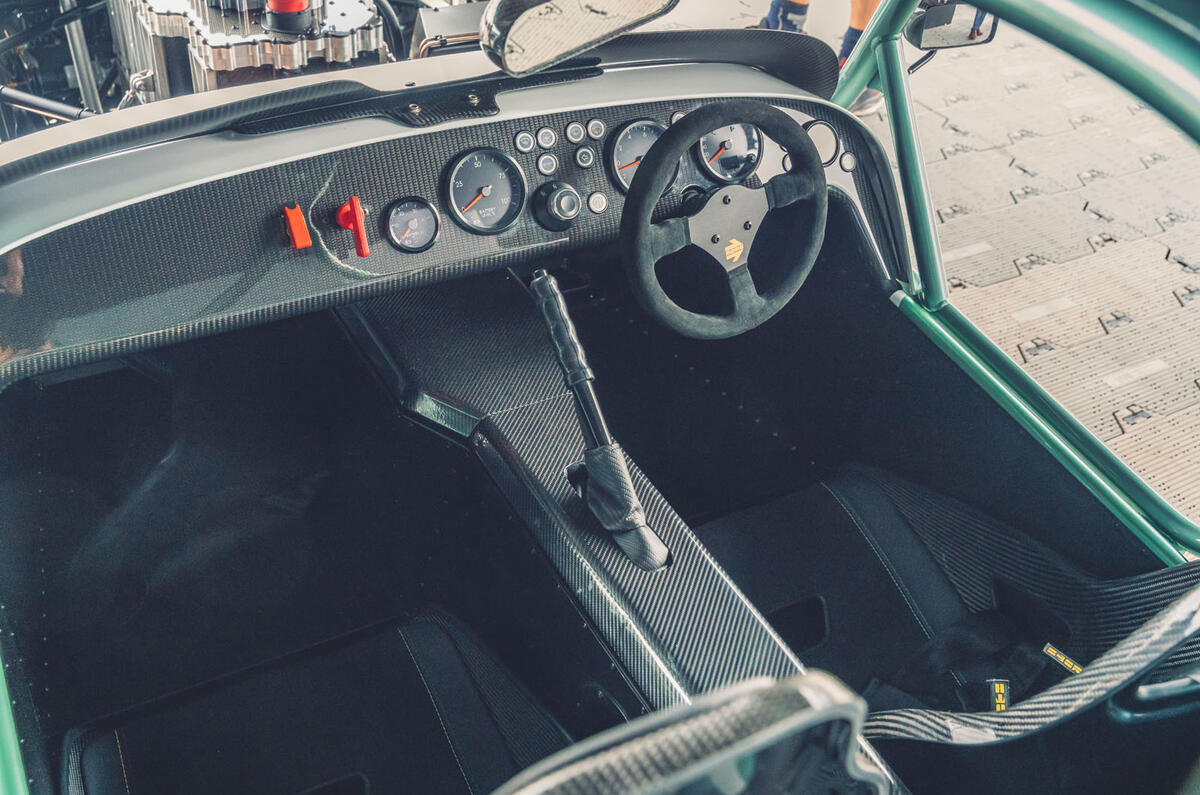
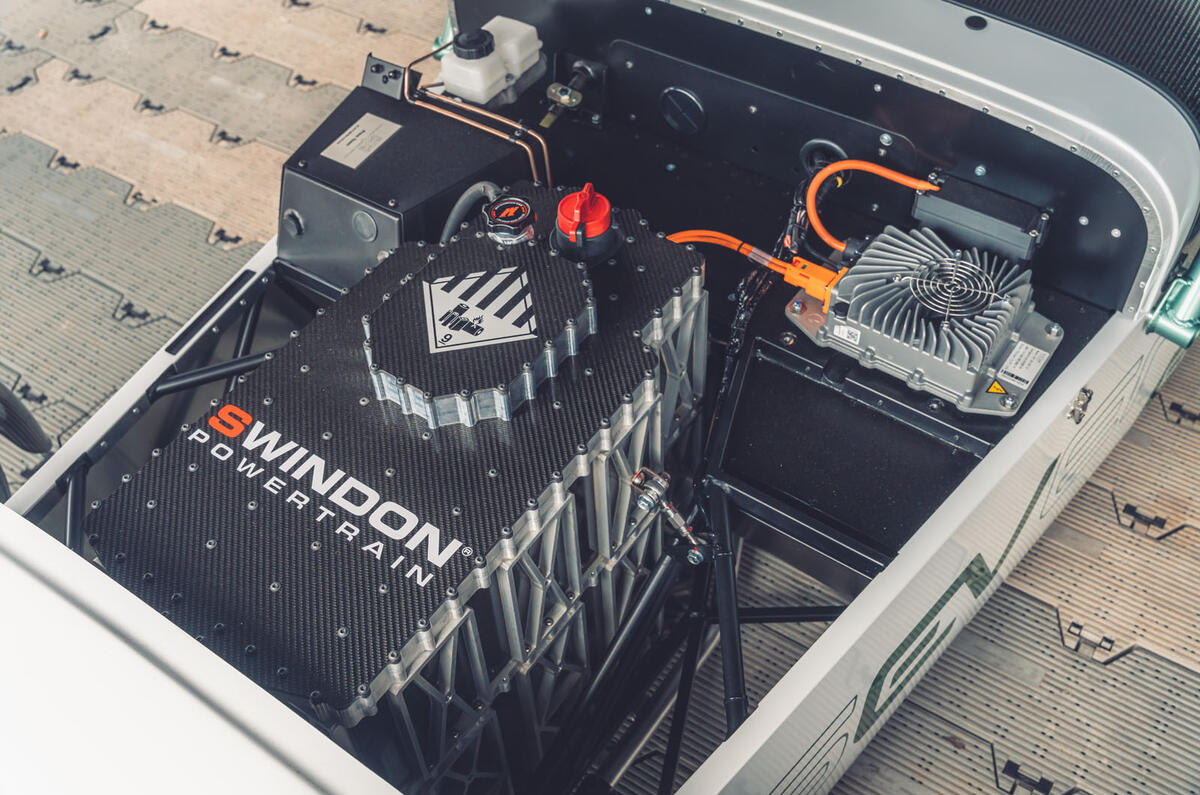
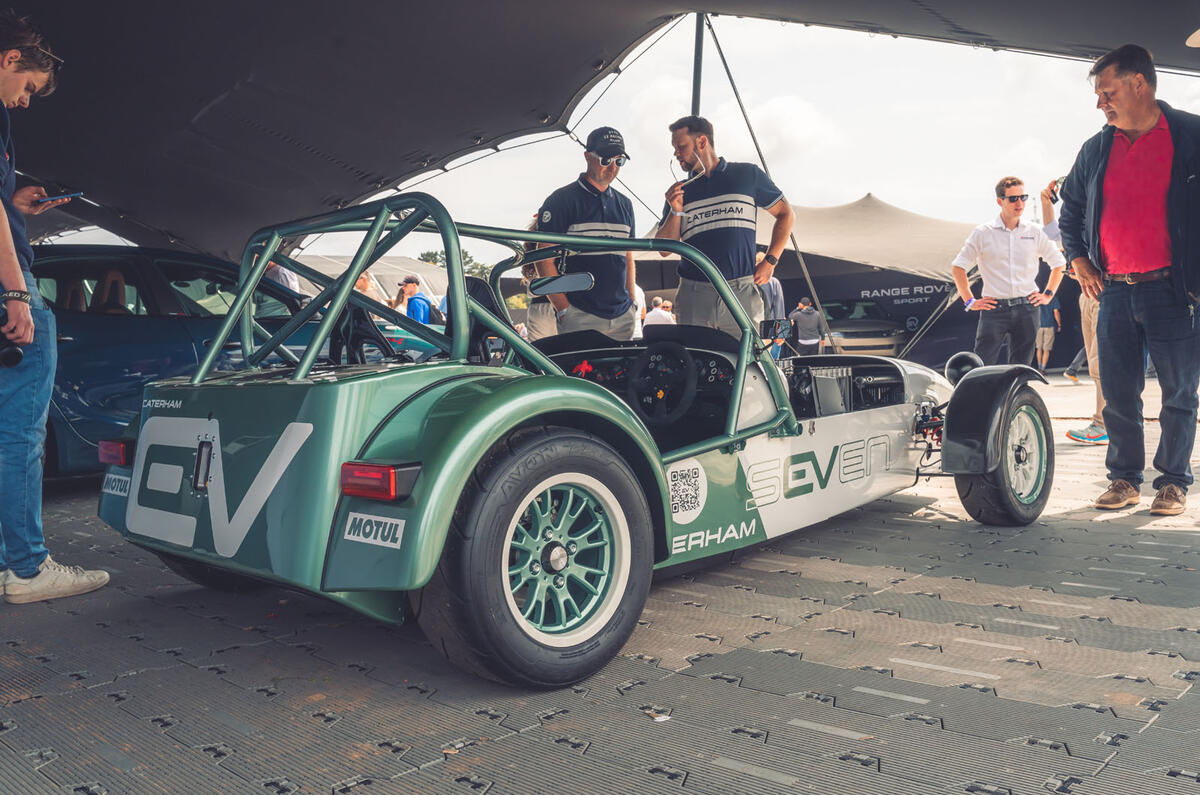
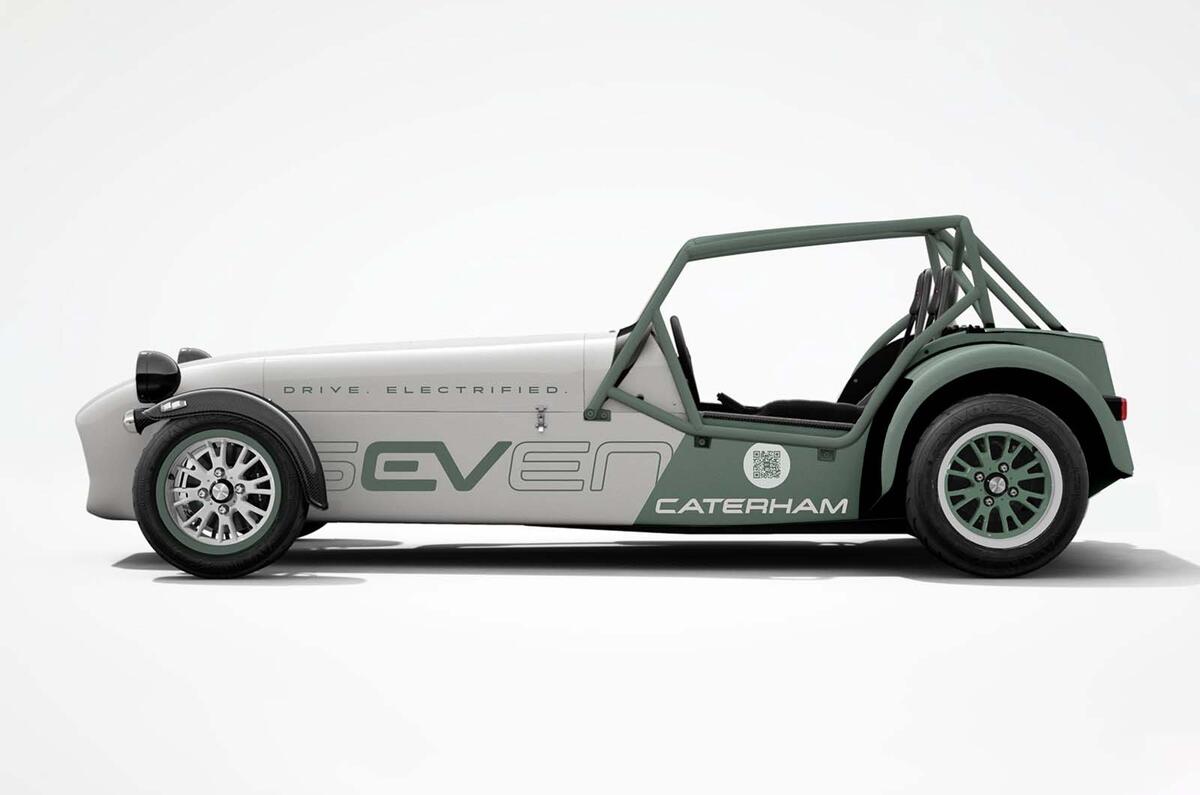
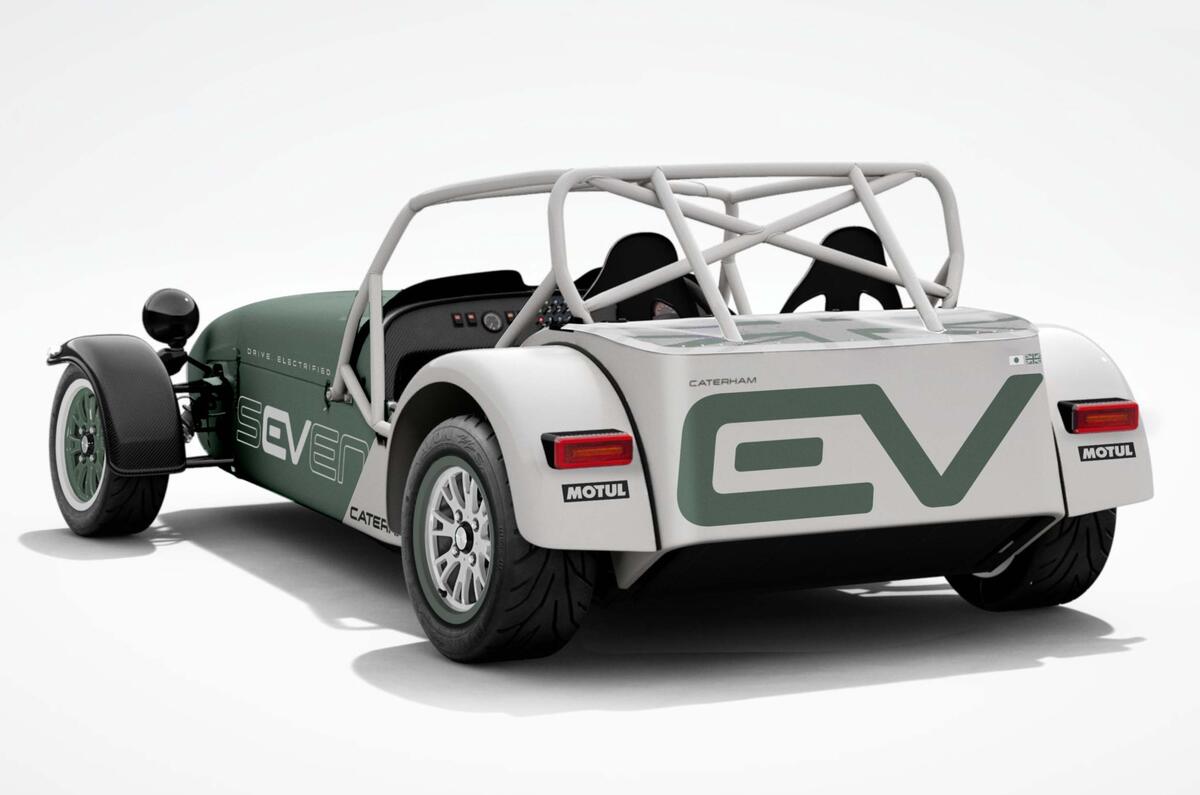
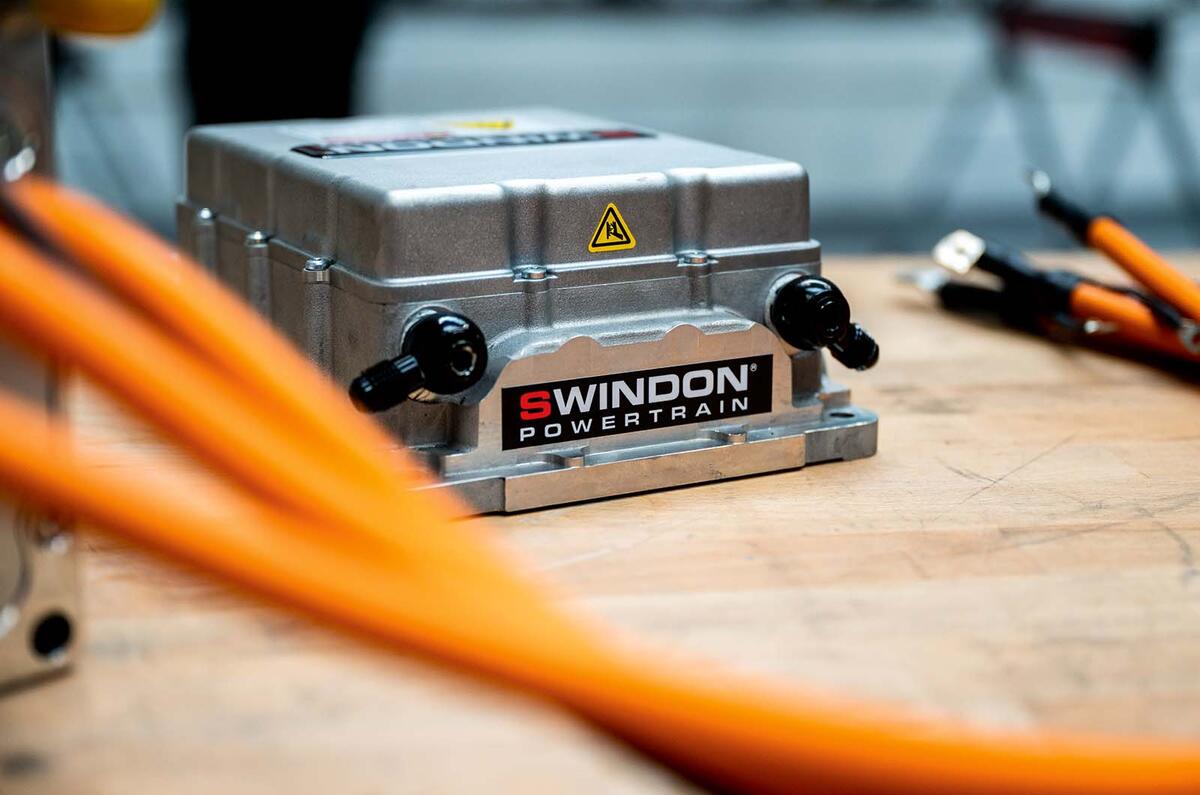
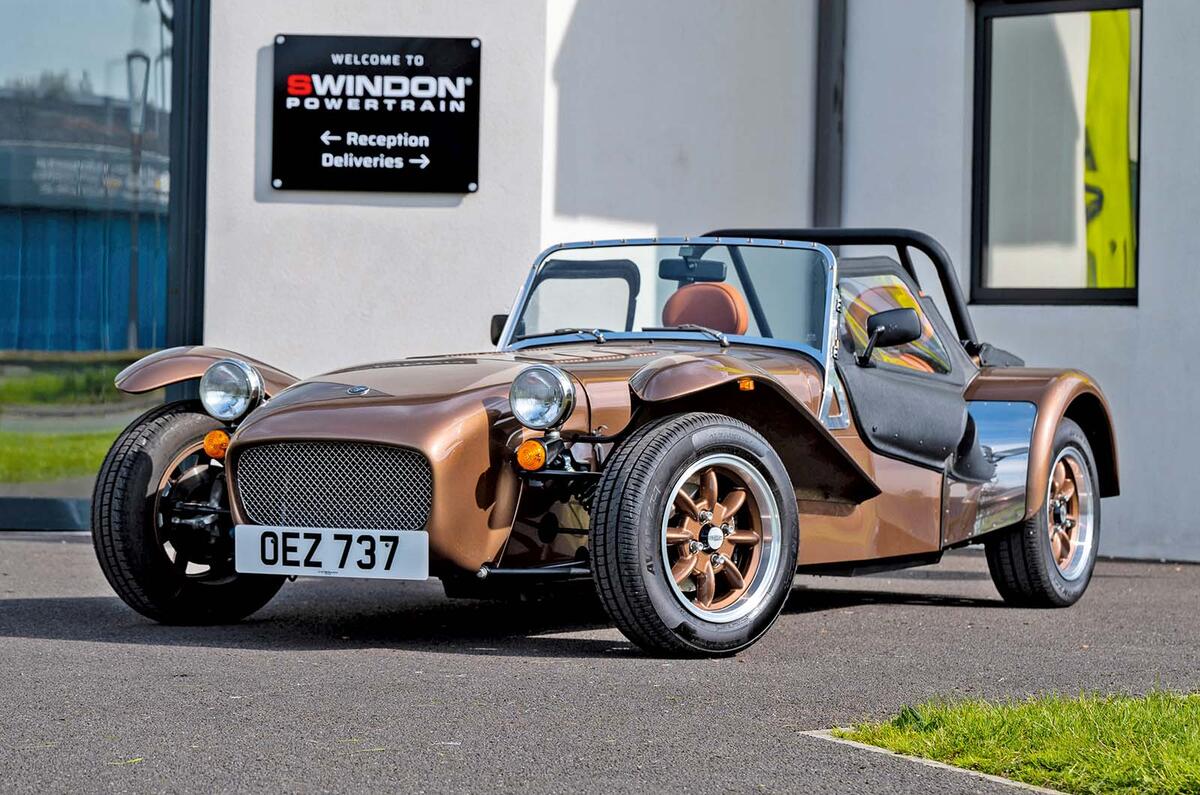
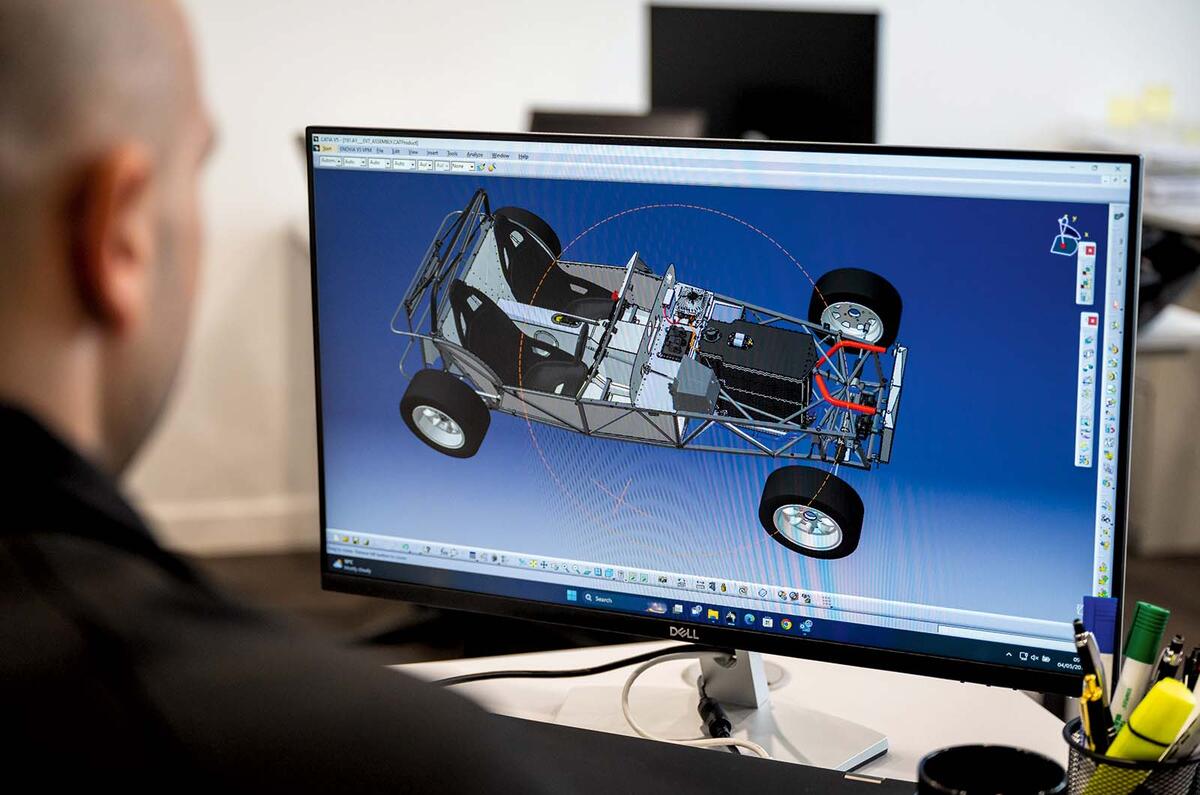









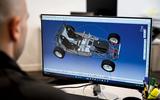

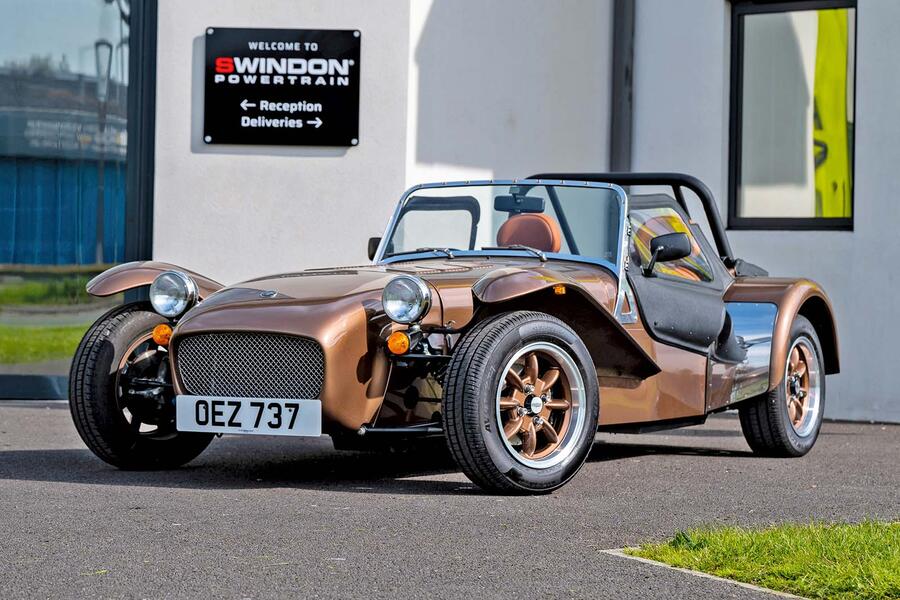




Join the debate
Add your comment
Fabulous! The perfect short blast in the country sports car. Just, please, DO NOT USE ELECTRIC STEERING!
Not if it's designed to cope with being rapid charged and rapidly discharged all day long
As a rich-man's plaything, an EV is a technological tour de force, and owners will never tire of the way they accelerate.
However, after 10+ years and significant taxpayer incentives (to coerce a switch to EVs), less than 10% of the cars on UKs roads are EVs. Even so, these 700,000 cars (RAC figures) are dis-served by a woeful charging 'network', particularly on main arterial routes. If 700,000 cars hasn't made a business case for private investment on those main routes, it's delusional to think that one will be able to rapid charge at the vast majority of the smaller circuits/venues that service the (tiny) enthusiast market.
Consider the use case of a one-make race series. I'm not being awkward: Caterham claims it runs the largest factory-backed racing championship in the uk. So, 30 cars participate in a qualifying session, then ALL 30 cars need to SIMULTANEOUSLY rapid charge so that they can race!? Perhaps Autocar could reach our to the management at, say, Snetterton, Donnington, Anglesey, Cadwell, Castle Coombe, Croft or Thruxton and see where the infrastructure for this fits into their plans.I'll save the effort, it doesn't.